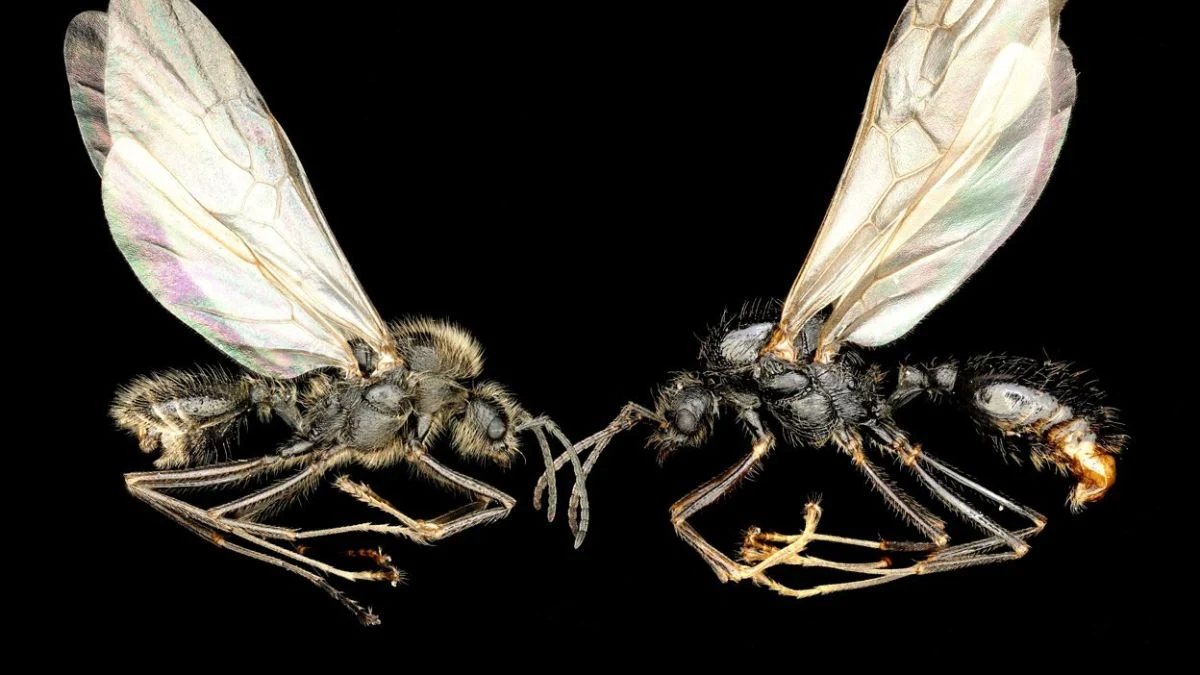In a discovery that scientists are calling “sci-fi material,” researchers have found that certain ants are capable of breaking one of biology’s most basic rules: parents and their offspring belong to the same species.
According to a new study published in Nature, queens of the Mediterranean harvester ant species Messor ibericus can produce male offspring belonging to an entirely different species, Messor structor. This bizarre reproductive trick allows them to generate hybrid workers that maintain and support their colonies.
The researchers have given this phenomenon a new name: xenoparity, or “foreign birth.”
How Ants Bent the Rules of Life
Normally, reproduction follows a predictable pattern humans have human babies, and ants give birth to ants of their own kind. While hybrids like mules or wholphins exist in nature, those require cross-species mating. What makes M. ibericus remarkable is that queens don’t need to find males from another species. They create them on their own.
When the queens produce M. structor males, they can then use those males to father hybrid workers with themselves. These hybrids, though sterile, perform all the tasks needed for colony survival: gathering seeds, caring for larvae, and defending the nest.
“It’s like a human giving birth to chimpanzee babies, then using them to produce human-chimp hybrids to do all the household chores,” explained study co-author Jonathan Romiguier of the University of Montpellier.
A Strategy Hidden in Plain Sight
Ant colonies operate with strict hierarchies: queens reproduce, males fertilize, and sterile female workers handle all labor. For M. ibericus, producing foreign males internally is a strategic advantage. Instead of searching for mates from another species which may not even live nearby anymore the queens can manufacture them at home.
This strategy is somewhat comparable to humans domesticating animals. Rather than chasing wild resources, the ants have streamlined their system, ensuring survival and growth.
The Genetic Surprise Behind the Discovery
To test how this worked, scientists collected M. ibericus colonies and examined their DNA. They discovered that even the M. structor males carried mitochondrial DNA from M. ibericus. Since mitochondrial DNA is always inherited from mothers, it confirmed that the foreign males were in fact born from M. ibericus queens.
When isolated queens were studied in the lab, nearly 10 percent of their eggs developed into fully M. structor males. Researchers watched as these unusual ants matured, providing undeniable proof that the queens were creating a different species.
This shocked evolutionary biologists, as M. ibericus and M. structor diverged around five million years ago the same timescale separating humans from chimpanzees.
Why This Matters for Evolution
The phenomenon raises new questions about how far evolution can bend its own rules. Hybridization in ants isn’t new some queens rely on sperm from other species to create stronger workers. But until now, no one had seen a case where an animal could generate offspring belonging to a different species without outside help.
Read More: Elon Musk Buys $1B in Tesla Stock, Boosting Investor Confidence
“This is fabulous,” said Gary Umphrey, a biostatistician from the University of Guelph who coined the term “sperm parasitism.” “Evolution is basically DNA finding ways to keep reproducing. This is just another very cool way.”
The Future of Ant Research
The discovery of xenoparity is expected to trigger a surge in ant genetics research. Understanding how M. ibericus queens manage this reproductive trick could reshape the study of hybridization, parasitism, and evolutionary strategy.
While it may sound like the plot of a science fiction novel, the finding demonstrates the endless creativity of natural selection. Ants, some of Earth’s smallest creatures, have once again shown that evolution can take unexpected and mind-bending paths.





